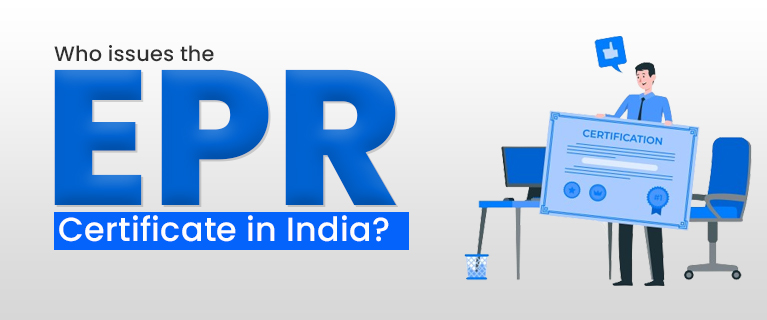Everything To Know About BIS Act In India And BIS Registration
The
Bureau of Indian Standards (BIS) is established as India's national standards organization under the provisions of the Bureau of Indian Standards Act, of 2016, get bis registration. This subject is significant for the IAS test in several headings, including politics, administration, economy, etc.
What is the BIS Act in India?
The BIS Act of 2016 established BIS, the National Standard Body of India, with the goal of ensuring the seamless functioning of product standardization, marking, and quality certification, along with addressing any associated issues. BIS has successfully provided various advantages to the national economy through its efforts in standardization, certification, and testing. These benefits include the provision of safe and high-quality products, reduction of consumer health risks, promotion of exports, and facilitation of imports.
BIS works in several activities, some of which are listed below, keeping in mind both the interests of consumers and the industry:
- Standards Formulation.
- Product Certification Scheme.
- Compulsory Registration Scheme.
- Foreign Manufacturers Certification Scheme.
- Hall Marking Scheme.
- Laboratory Services.
- Laboratory Recognition Scheme.
- Sale of Indian Standards.
- Consumer Affairs Activities.
- Promotional Activities.
- Training Services, National & International level.
- Information Services.
The Bureau of Indian Standards (BIS) has its main headquarters located in New Delhi. It also operates five regional offices (ROs) situated in Kolkata (Eastern), Chennai (Southern), Mumbai (Western), Chandigarh (Northern), and Delhi (Central). These regional offices oversee and coordinate BIS activities within their respective areas.
Under each regional office, there are branch offices (BOs) situated in various cities across India. These branch offices, located in Ahmedabad, Bangalore, Bhubaneswar, Bhopal, Coimbatore, Dehradun, Faridabad, Ghaziabad, Guwahati, Hyderabad, Jaipur, Kochi, Lucknow, Nagpur, Parwanoo, Patna, Pune, Rajkot, Raipur, Durgapur, Jamshedpur, and Vishakhapatnam, provide certification services to industries. They also serve as a crucial link between state governments, industries, technical institutions, consumer organizations, and other stakeholders in their respective regions.
Read Also This - Can I Import Without A BIS Certificate
Requirement of the Bureau of Indian Standards Act (BIS) 2016
The Act outlines the standards for goods and services in India and establishes the Bureau of Indian Standards as the country's National Standards Body (NSB). It enables the NSB or any approved agency it has established to register individuals and organizations. No person shall produce, store, sell, or distribute items that do not meet the requirements specified in the Act. A specific good or service may be listed as notified goods or notified services by the Minister in charge, and this Act must apply to those goods or services.
The Central Government may create an accreditation body to accredit certification agencies and implement regulations to control the tasks, authority, and responsibilities of such entities. Additionally, it provides for the establishment of a national appeals board to hear challenges against judgments made by the NSB or another approved entity.
Manufacturers, importers, sellers, and distributors may be asked for information by the Authority established by this Act regarding the standardization and quality assurance of the products or services covered by this Act. Additionally, this Authority is empowered to conduct property searches and seize contraband.
Features of the BIS Act:
- A Bureau is created by the Act to standardize, certify, and mark products and processes.
- In the public interest, the safety of the environment, the protection of national security, or to stop unfair business practices, the Act permits the union government to make it mandatory for certain notified commodities, processes, items, etc. to wear the standard mark.
- The BIS Act also permits a variety of streamlined conformity assessment plans, such as self-declarations of conformance to standards, which give firms more convenient ways to follow regulations and get conformity certificates.
- The Act states that the central government may designate any organization or body (other than the BIS) to check the conformity of goods and services and issue conformity certifications.
- The Act also has a clause that allows for the recall or repair of goods that display the Standard Mark but do not meet the necessary Indian standards.
- New areas have been selected for standardization by the Act. These consist of:
- Medical devices.
- Alternate fuels.
- Smart cities.
- E-mobility.
- New and renewable energy.
- Digital technologies such as Artificial Intelligence, Industry 4.0, and Blockchain have revolutionized various industries.
- The BIS (Hallmarking) Regulations, 2018, make it essential to hallmark items made of precious metals like gold and silver, including jewelry and artifacts.
- If the Indian standard mark is used improperly, a fine of up to Rs. 5 lahks would be imposed.
- The Act also specifies penalties for the following actions:
- Testing and marking centers using the standard mark improperly.
- manufacturing or selling products that are required to bear a standard mark but do not, etc.
Read Also This - Everything To Know About Bis Certification For Set-Top Box
What are the major activities of the Bureau of Indian Standard Act?
According to the Bureau of Indian Standards Act, the Bureau of Indian Standards (BIS)'s primary activities include the following:
- Standardization: BIS is in charge of creating and enforcing standards in a number of areas, including systems, processes, products, and services. It creates and supports standards that guarantee the high caliber, security, and dependability of goods and services in India.
- Certification: In accordance with applicable Indian standards, BIS certifies a variety of products and sectors. It bestows the coveted ISI seal, signifying that a product complies with the necessary quality and safety criteria.
- Testing: BIS runs testing labs to judge the effectiveness and quality of various products. In order to ensure adherence to relevant standards and specifications, it performs tests, analyses, and calibration services.
- Registration of products: BIS runs a product registration program to guarantee the security and caliber of items traded on the Indian market. Before they can be marketed, certain products, like electrical appliances, must go through an obligatory registration process and adhere to set requirements.
- Consumer Protection: By creating and upholding standards that shield customers from inferior or hazardous products, BIS plays a critical role in protecting consumer interests. It responds to consumer complaints about product performance, quality, and safety and takes appropriate action against non-compliant manufacturers and suppliers.
- International Engagement: BIS works extensively with international standardization groups and represents India in initiatives involving international standardization. It takes part in the creation of international standards, the synchronization of Indian standards with those of other countries, and the promotion of Indian goods abroad.
Read Also This - Learn How to register bis online for Import Steel products: Complete guide
BIS Registration and License Granting:
- The BIS Act 2016, BIS Rules 2018, and BIS (Conformity Assessment) Regulations 2018 must all be studied in connection with the procedure for the grant of license (GoL). The BIS (Conformity Assessment) Regulations, 2018, namely Regulations 4 and 5, and Scheme I of Schedule II, address the provisions for Grant of Licence (GoL).
- The applicant must submit to the Bureau an online application together with the necessary paperwork.
- Following this, the authorities visit the applicant's plant to evaluate its manufacturing infrastructure, production process, quality control, and testing capabilities. A sample will then be taken for analysis in a third-party testing laboratory.
- Only laboratories created, maintained, or acknowledged by the Bureau for the product—or other laboratories as determined by the Executive Committee of the Bureau—will have their test findings accepted.
- The test results for the produced product shouldn't be older than ninety days.
- There is no requirement for proof of raw material conformity when Indian standards for raw materials are mentioned in the product standard solely for direction or reference. It is the applicant's responsibility to ensure that the raw materials and components are in compliance.
- The applicant is responsible for making sure that the test reports submitted are accurate in every way and adhere to the applicable Indian Standard. If a partial test report is submitted, the applicant is required to explain why the report is incomplete.
Various bis registration & certificates:
BIS Registration & Certification abide by all BIS schemes . Get complete support during the application process, including help with filling out the application, taking the test, working with the BIS officer, and receiving the certificate. We offer assistance with both product testing and obtaining the various BIS-covered licenses.
These licenses consist of:
- Certification BIS, CRS.
- FMCS.
- ISI Certification/Mark.
- Assaying and hallmarking center.
- Certification for BIS laboratory recognition scheme.
- Management systems.
- ECO mark certification.
For a period of 2 years, the certificates are valid. Throughout these two years, BIS has the power to require periodic product audits.
Read Also This - Guide to BIS Registration: How Long Does it Take to Register
Steps to get bis registration in India :
The steps listed below are necessary for BIS Registration under the Compulsory Registration Scheme:
- Step 1: To get the product tested, you must send a sample of it along with the necessary lab fees to a testing facility approved by BIS. Depending on the product being considered, fees may change.
- Step 2: The testing procedure is usually finished in 10 to 15 days. The laboratory issues the Test Report after thoroughly inspecting the goods.
- Step 3: The test report must be uploaded to the BIS portal with the application and supporting documentation. If there are any questions, a staff member from BIS will get in touch with you via email.
- Step 4: BIS issues the license upon review of the application form, supporting documentation, and test report.
Conclusion
In conclusion, if the conditions of a license are violated, the Bureau of Indian Standards (BIS) has the authority to cancel the license under Regulation 11 of the BIS (Conformity Assessment) Regulations, 2018. The BIS Act, 2016 establishes penal provisions for the unauthorized use of the ISI mark without a valid license, as outlined in sub-section (3) of section 29. Additionally, for products that have been designated for mandatory bis registration by the Central Government, manufacturing or selling the product without the ISI mark and without a valid license is subject to penal provisions as specified in sub-section (3) of section 29 of the BIS Act, 2016.










